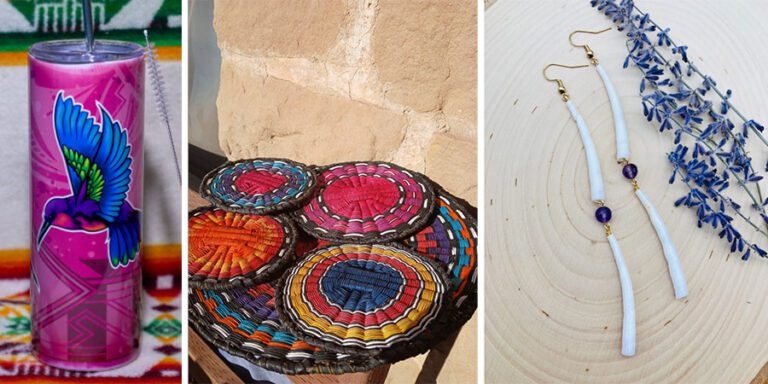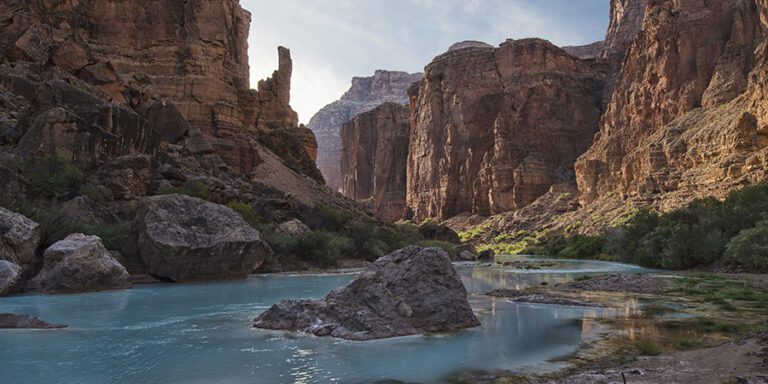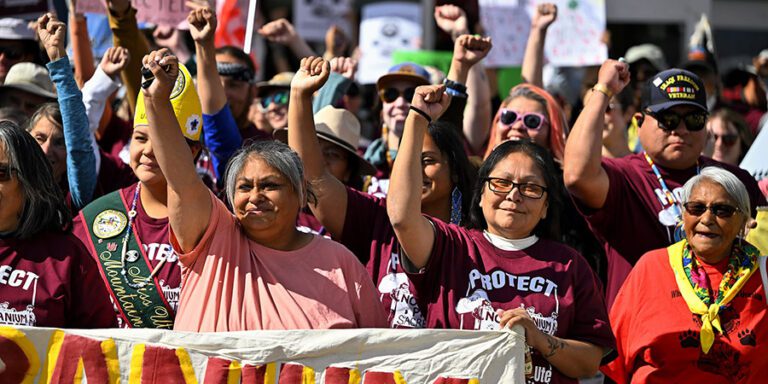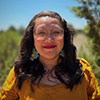
Coffee Pot Farms is bringing healthy, homegrown food to the Navajo Nation.
The Grand Canyon Trust is proud to partner with Change Labs to help entrepreneurs realize their dreams and build a strong, resilient, and culturally respectful economy across Native America.
Cherilyn Yazzie, farmer and co-owner of Coffee Pot Farms in Dilkon, Arizona, is finding solutions to nutrition challenges on the Navajo Nation.
About six years ago, Yazzie and her husband started learning about farming and began growing. Today they grow over 20 crops which include tomatoes, radish, green onions, kale, lettuce and a variety of other vegetables. However, farming on the Navajo Nation isn’t easy. The Navajo Nation expands over 27,000 square miles and covers portions of New Mexico, Arizona and Utah. The climate can be unforgiving and the process to get land can be tied up in years of paperwork. It’s not the easiest place to start or run a farm, but Yazzie takes on these obstacles one at a time.
Farming off the grid
“We’re totally off the grid, we have to haul our water in for our plants,” she said, adding they have no running water or electricity at their farm. Yazzie and her husband installed solar panels to help power a walk-in cooler and a drip line system. The drip line system pulls water from a tank to water the vegetables.
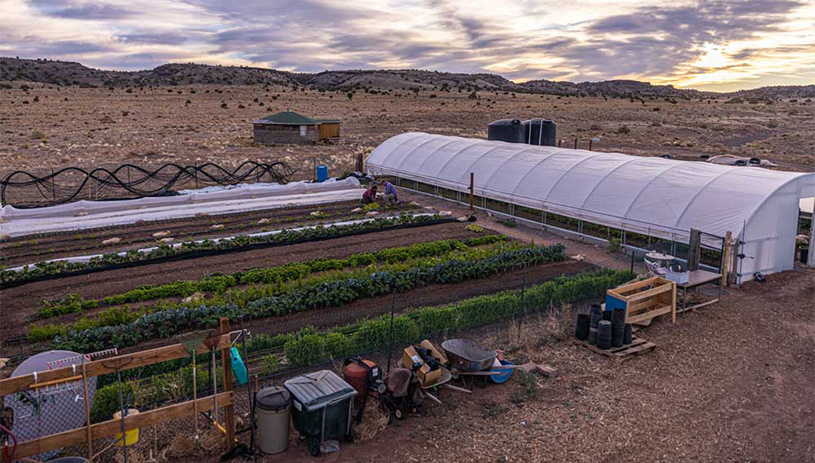
At Coffee Pot Farms everything is done with intention. The farm sits on a one acre plot and due to its size, the farmers make sure they use the space properly.
“I do want to be able to grow our traditional corn, squash and melons but I just don’t have the land for it,” Yazzie said. So, she found a mentor who taught her a new way of farming and while it’s more modern than traditional, it’s the perfect fit for Yazzie’s business.
Coffee Pot Farms business model operates through Community Supported Agriculture, it’s a way for customers to buy local and directly from the farmer. Yazzie offers food boxes to their customers and do local drop offs in Dilkon and Winslow, Arizona. Right now they have a small customer base but hope to expand in the future when they can install a private well.
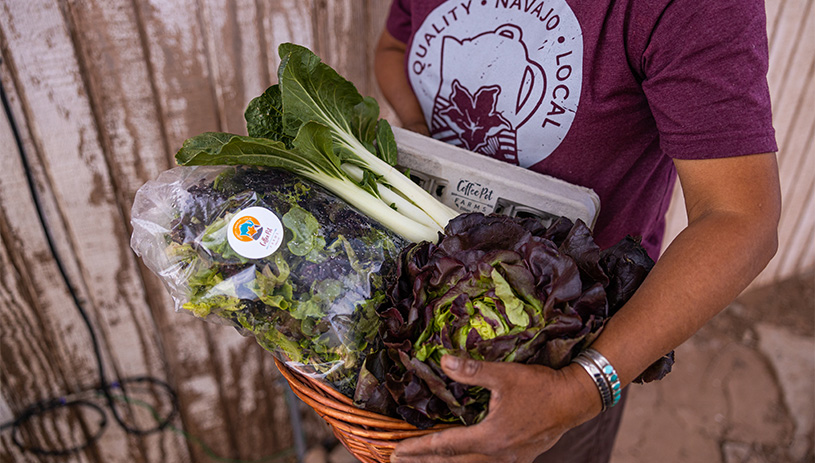
In order to help with costs and start up, Yazzie took out a loan through Kinship Lending and paid her loan back in less than a year. Not an easy feat during a global pandemic.
Money from customers in the Community Supported Agriculture program as well as consulting work, helped Yazzie pay back the loan fast. Knowing how hard it can be to pay back a loan, Yazzie and her husband did their research, created a plan to pay back the loan, and made their decision only when they were comfortable.
“Be careful and think about paying it back,” Yazzie said. She recommends small businesses that are thinking about taking loans make a payment plan and stick with it.
A self-starting farming entrepreneur
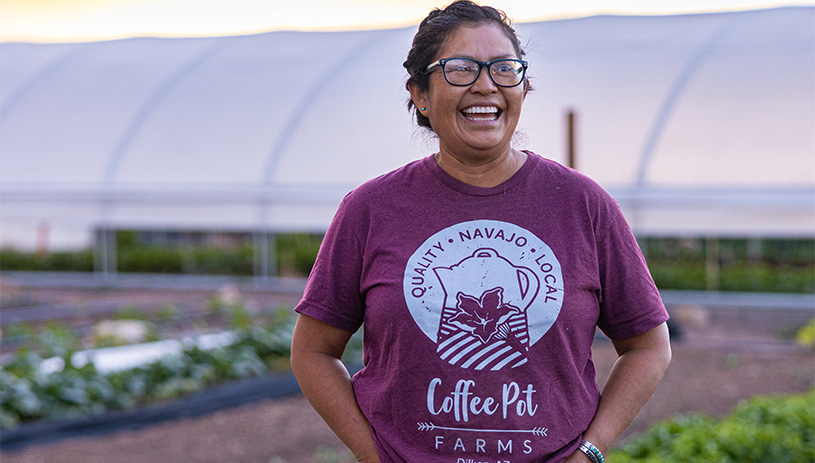
Learning how to farm in a desert environment was a challenge, but Yazzie also had to learn how to run a business. With a background in social work and public health, Yazzie had a career at the Navajo County Public Health’s Nutrition Education Program running prevention programs aimed at children and healthy eating. However, she found herself frequently seeking answers to questions that didn’t add up.
“Some of the things we were teaching, it didn’t really match up with the food environment for the Navajo Nation,” she said. “You want them (children) to eat healthy foods but they don’t have access to it.”
Yazzie left the public health field in hopes of finding out why more people weren’t farming on the Navajo Nation and how she could successfully start.
The challenge and opportunity for Navajo farmers
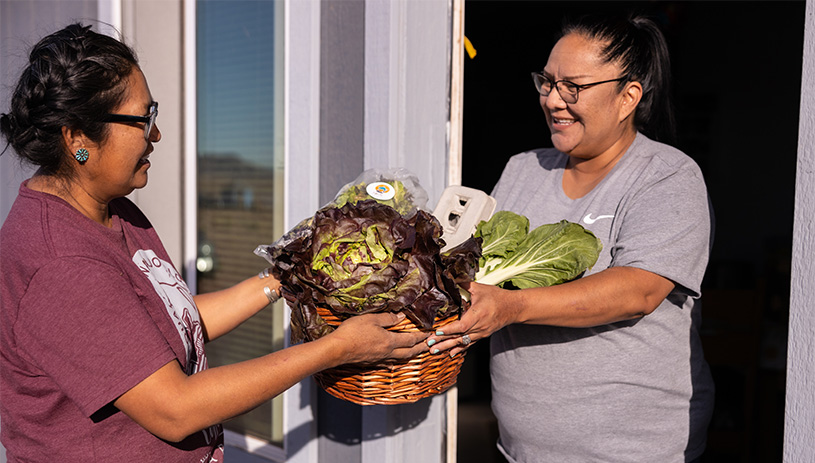
The struggle of having little to no infrastructure, hot windy weather and years of paperwork and a bureaucratic process have helped Yazzie figure out the farmer she wants to be. She hopes the pandemic taught people lessons about food and being self-sustaining. By relying on the land and not the government, Yazzie has found some answers to the many questions she asks.
“I think if you want to get into farming, it really would be about starting to build relationships and finding out who you want to work with,” she said. “Hopefully people can start building relationships together again in a meaningful way.”
Yazzie can see the Navajo Nation slowly making steps towards food sovereignty and she’s played a role in that work by educating community members on how they can begin growing their own healthy food and cultivating a new generation of farmers.
Coffee Pot Farms and their journey can be followed at their website coffeepotfarms.com and through social media on Facebook and Instagram.
This blog is reprinted with permission from Change Labs. Read the original post and learn more


